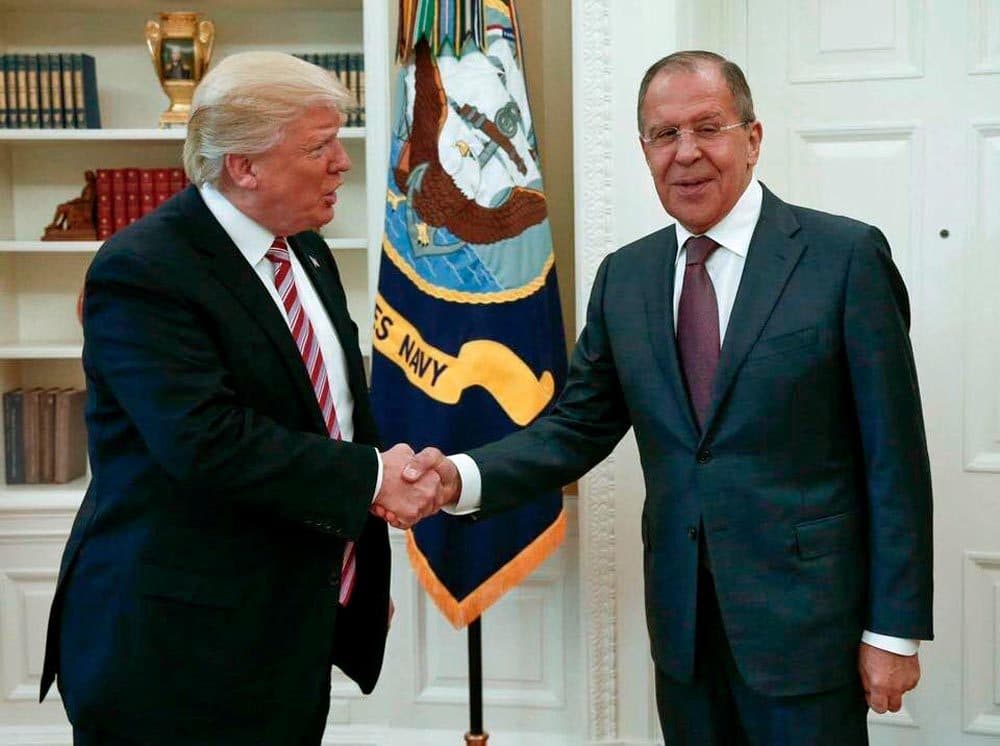Advertisement
From The iLab's Production Room
Freak Out And Carry On: 'Loose Lips Sink Ships'

In "Freak Out and Carry On," the new politics and history podcast from the WBUR iLab, Pulitzer Prize-winning author and journalist Ron Suskind and Boston College historian Heather Cox Richardson talk with The Atlantic's Yoni Appelbaum about why it's so dangerous that Trump shared intelligence with the Russians and what we can learn from Benedict Arnold and Presidents Eisenhower and Clinton.

Excerpts
Yoni Appelbaum, The Atlantic: In the first 100 days of this administration, President Trump was promising everyone a new hope. Now we are in the second 100 days, where the institutions are striking back. This is a president who campaigned against elites, against the system, against institutions, and who is discovering to his enormous chagrin that they’ve done their homework and he hasn’t. He walked into the meeting with the Russian foreign minister and ambassador and their aides without apparently doing his homework and without reading the classified memorandum. He’d only absorbed the top lines. The defense that his own national security adviser has lodged here is that he couldn’t have purposefully divulged these secrets because he didn’t even understand exactly where they’d come from. He didn’t understand that these were shared by a foreign intelligence agency, he didn’t understand that he was jeopardizing the source of that information.
You have a president who tries to pass off something casually in conversation and commits an enormous gaffe that his administration is going to struggle for a while to recover from, except that at the same time he did something else remarkable. A few weeks ago he asked the attorney general to leave the room so he could talk directly to his FBI director and asked FBI Director Comey to go easy on Mike Flynn because he is a good guy. Again, Trump doesn’t seem to understand how the game is played but James Comey does understand how the game is played and he exited the meeting and recorded the conversation in a memo. After Trump fired him he is apparently now having his revenge.
Ron Suskind: There are two sides here. On one side you have: malicious, corrupt, in collusion with the Russians to become the president. On the other side you have: he’s confused, he’s incompetent, he doesn’t understand how the rules work. Those are very different narratives. One narative kind of lets him off the hook. We ran into some of this in the George W. Bush administration because he was a newbie too. Which is it: corrupt or incompetent?
Heather Cox Richardson: I don’t think it is incompatible to have both incompetence and corruption. It seems to me that President Trump doesn’t understand what the presidency is about and does believe that he can come up and blast Washington to smithereens and somehow be a success. And yet when you think about the presidents who have come from outside of Washington, they are not uniformly incompetent. We’ve had some really quite successful outsiders. The biggest one that comes to mind is Eisenhower who came to Washington with no political experience. He had bureaucratic experience in World War I and World War II and was brilliant. This idea that there is a game being played in Washington that is hostile to outsiders is a very recent idea and it takes off under Nixon and it hits Carter especially hard and it hits Clinton.
Appelbaum: This administration is pretty bad. You have to stretch for parallels. The early months of the Clinton administration were pretty awful with Mack McLarty as chief of staff. Clinton did eventually professionalize his staff. He brought in more D.C. insiders. He empowered his chief of staff and turned it around. But by then the early scandals eventually lead to the appointment of an independent prosecutor who ultimately lead to Clinton’s impeachment. In the Trump White House, this is a president who likes to seek counsel from dozens of people outside the building and who, in recent days, has concluded that he is surrounded by insiders and needs to go back and reach out to the loyalists who were with him in the campaign. He is moving in exactly the opposite direction that Clinton used to stabilize his own White House.
Suskind: The first thing they’d tell a new president is that the most important thing keeping America safe at this point is what we call liaison service relationships. The Saudi intelligence service, the Jordanians, the French, The Germans. All the intelligence services talk to each other in these liaison relationships. Why are they so important? Because the destructive power that was once reserved for nations can now be carried out by small groups of individuals, terrorists.
But you have to share intelligence carefully. Not everyone is one team. By revealing this to the Russians, they know who provided us this valuable information. And folks allied with the Russians that are not allied with us now know that too. That means someone will die in the wake of this, almost for sure. Someone who ran an intelligence operation to get inside of ISIS, giving us precious information that saved lives, probably, in America and Europe. That whole operation collapses and now that person is knowable. That person is knowable to people who want to kill him, that’s the way it works. So right now, because of what Trump did, someone will die almost for sure. You won’t hear about it probably.
Cox Richardson: When you think about people who have given away information to foreign powers, it’s almost always during the Cold War and it is almost always people who gave intelligence to the USSR. So I had to think a long time about what this looks like to me. The only thing that I can find that was comparable--a government official who gave valuable information to a hostile power--was Benedict Arnold. And it is funny because when everyone hears his name they think “traitor.” But the interesting thing about Benedict Arnold is his larger story because I think it does matter today. He was a very talented army officer and was instrumental in the American Revolution. He won in Fort Ticonderoga in 1775, he went on to play a big role in Saratoga in 1777. What is interesting about Arnold is that he had a very large ego, he got frustrated because he didn’t think he received the credit he deserved and he needed money. He switches sides and his argument is that the American cause is no longer viable and he is heartbroken by all the death and destruction he sees but there is also the issue that he needs money and that he was passed over for promotions. So his actual motives are not very clear. He’s put in charge of West Point and makes arrangements to turn it over to the British but that plot gets foiled and he knows that the gig is up. He makes sure his wife is escorted to safety. Washington recognizes what he’s done and he ends up being investigated by Congress and it is clear that he’s committed treason. He does officially switch sides to the British, he gets a pension, they end up paying him off, he ends up eventually moving to Britain.
The views and opinions expressed in this podcast are solely those of the participants and do not in any way reflect the views of WBUR management or its employees.
